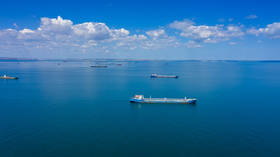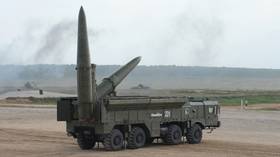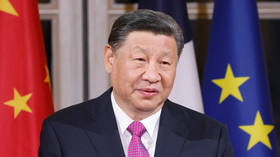Russian oil shipments spike to three-month high – Bloomberg

Russian seaborne oil exports soared to a three-month high last week despite Western sanctions and Moscow’s decision to extend supply curbs to the end of the year, Bloomberg reported on Tuesday, citing tanker-tracking data.
According to the report, Russia’s average nationwide shipments in the four weeks to September 17 jumped to 3.34 million barrels per day (bpd), roughly 465,000 barrels more than in the four weeks to August 20. Shipments were reportedly back at the levels last recorded in February of this year, but remained some 390,000 bpd below the highs of April and June. The largest increases were recorded at the Baltic ports of Primorsk and Ust-Luga, as well as Novorossiysk on the Black Sea.
The surge in exports mostly came from tankers showing no final destination, most of which, according to industry experts, end up in India or China. Total flows of crude bound for China, India, “unknown Asia,” and “other unknown” destinations reached 2.7 million bpd on average in the four-week period.
Russia’s seaborne crude exports to the EU were unchanged at 146,000 bpd in the reporting period. Bulgaria was the only destination for these shipments. Exports to Türkiye rose to about 220,000 bpd, the highest since June.
The outlet noted that a certain increase in Russia’s oil shipments “was to be expected,” after Russian Deputy Prime Minister Alexander Novak announced last month that while Moscow would extend its supply cut, the volume of the reduction would be lowered to 300,000 bpd from 500,000 bpd in August. However, Bloomberg noted that shipments have grown by more than twice as much as implied by that change.
Russia first announced its intention to reduce oil output by 500,000 bpd in February. The move came in response to Western sanctions, including the EU embargo on Russian seaborne crude exports and the G7’s $60 per-barrel price ceiling on Russian oil. However, the country has been able to work around the sanctions, having secured reliable buyers among Asian nations, particularly India and China. The two have been the largest buyers of Russian crude for the past several months.
For more stories on economy & finance visit RT's business section












